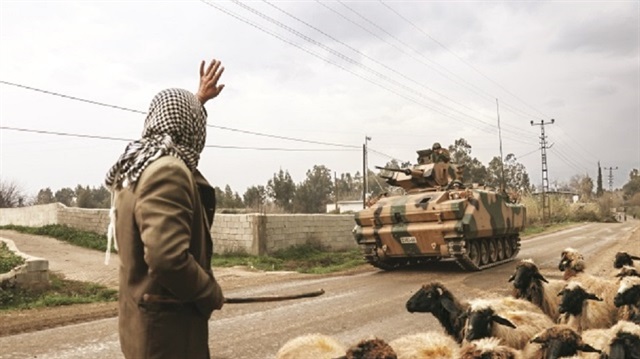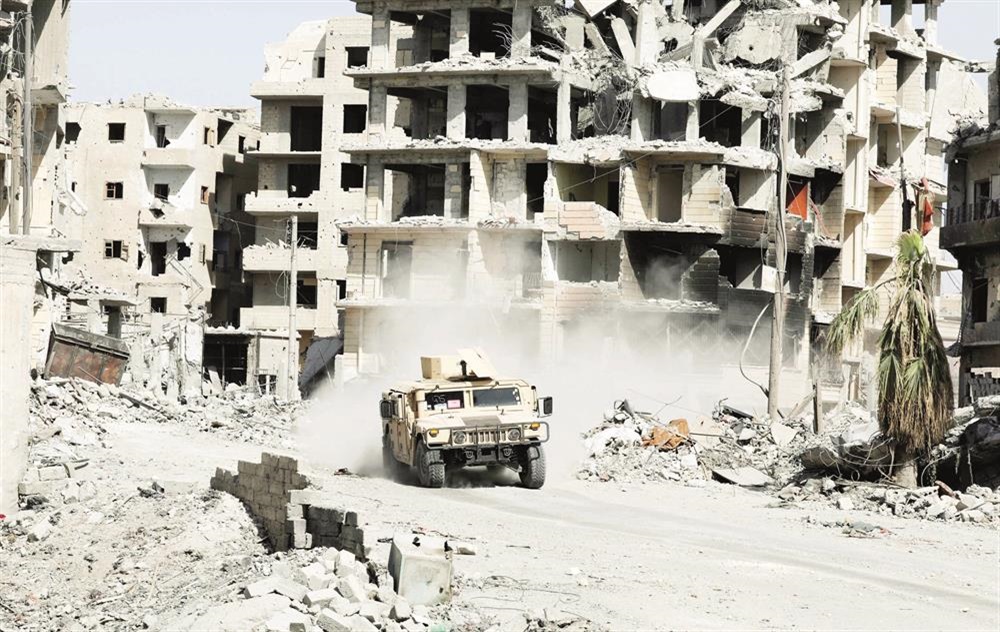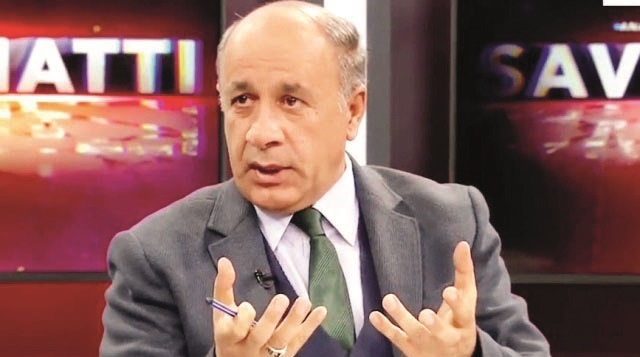

Turkey’s implementation of safe zones east of Euphrates inevitable
Turkey to mobilize east of the Euphrates River and enforce safe zones as it has done in Syria’s northwest
The U.S. military presence east of the Euphrates River and the Kurdistan Workers’ Party (PKK) threat is on the agenda of Turkey, Russia and Iran, the guarantors the Astana peace talks. Northern Syria’s Tell Rifaat and Manbij are hotbeds for the PKK/PYD terror group.
The priority regarding the west of the Euphrates is to clear Tell Rifaat of terror elements. It is expected that in the upcoming period, this region could also be demilitarized as a result of talks and military cooperation between Russia and Turkey.
While Turkey works to keep Idlib safe, it is also preparing to make a move regarding the outdated Manbij map.
The YPG-dominated SDF controls an area of about 53,000 square kilometers with a percentage of 28.6 of Syrian territory. The Turkish military cleared a 2,500 square mile (4,000 square kilometer) area from Daesh and YPG/PKK terrorists as part of the Euphrates Shield and Olive Branch operations in Syria.
Stalling in Manbij
Turkey will take action east of the Euphrates River in Syria and impose safe zones as it has done in the northwest of the country, President Recep Tayyip Erdoğan said during his official trip to New York for the United Nations General Assembly.
“In the upcoming period we will increase the number of safe zones in Syria, encompassing the east of the Euphrates," Erdoğan said.
The Manbij roadmap agreed between Ankara and Washington has become obsolete. Tactics to stall in Manbij, which is seen as a safety door against the east of the Euphrates, are ongoing because the U.S. is aware that if it keeps its Manbij promise, Kobani, Ayn Issa, Tell Abayd, Resulayn, Dirbesiye, Qamishli, al-Hasakah and Raqqa are next.
The Manbij deal between Turkey and the U.S. focuses on the withdrawal of the PKK-affiliated YPG terror group from the city in order to stabilize the region, but has no far not yielded concrete results.
Safe zones inevitable
Erdogan has in the past warned of new military operations against the YPG along the Syrian border and if necessary into northern Iraq. Turkey is on the field in order to form a safe zone that extends from the Euphrates to Tigris.
If the Idlib demilitarization zone that Turkey and Russia agreed on last week is successful, a similar model could be implemented to the 50 to 60 kilometer-deep area that extends to Turkey’s borders from the Aleppo-Fishabur road.

Return of Syrian refugees
Close to one million displaced Syrians currently reside in tent cities in Turkey’s border towns. Ankara is pressing the matter of the return of these refugees to their homelands across many international platforms.
It seems that demilitarized zones are unavoidable from Kobani to Rimeylan for displaced Syrians to be able to return to their homes.
Turkey currently hosts nearly 3.5 million Syrian refugees, more than any other country in the world.
Syria has only just begun to emerge from a devastating conflict that began in 2011 when the Assad regime cracked down on demonstrators with unexpected ferocity.
PKK bars out Manbij locals
Mohamad T., a 22-year-old who wanted to visit his father in Manbij recently, stated that PKK terrorists did not let him enter the city. The Manbij local said his watch, glasses, cell phone and money were taken from him by the PKK.
“I’ve lost my right to stay. My only chance is if two PKK terrorists vouch for me,” said Mohamad, adding that he was sent to Jarabulus after two days of interrogation.

Turkey seeks to clear out “terror swamp”
Retired Brigadier İhsan Başbozkurt evaluated Erdoğan’s comments that “currently, the biggest problem for the future of Syria is the terror swamp, expanding under the auspices of some of our allies, east of the Euphrates.”
“Turkey, which renewed its defense line by joining the Euphrates and the Mediterranean, now seeks to join the Euphrates and Tigris. The demilitarized zone that is to be implemented in Idlib and probably Manbij may also be implemented east of the Euphrates,” Başbozkurt said.
#Syria
#Turkey
#Idlib
#Manbij
#PKK





